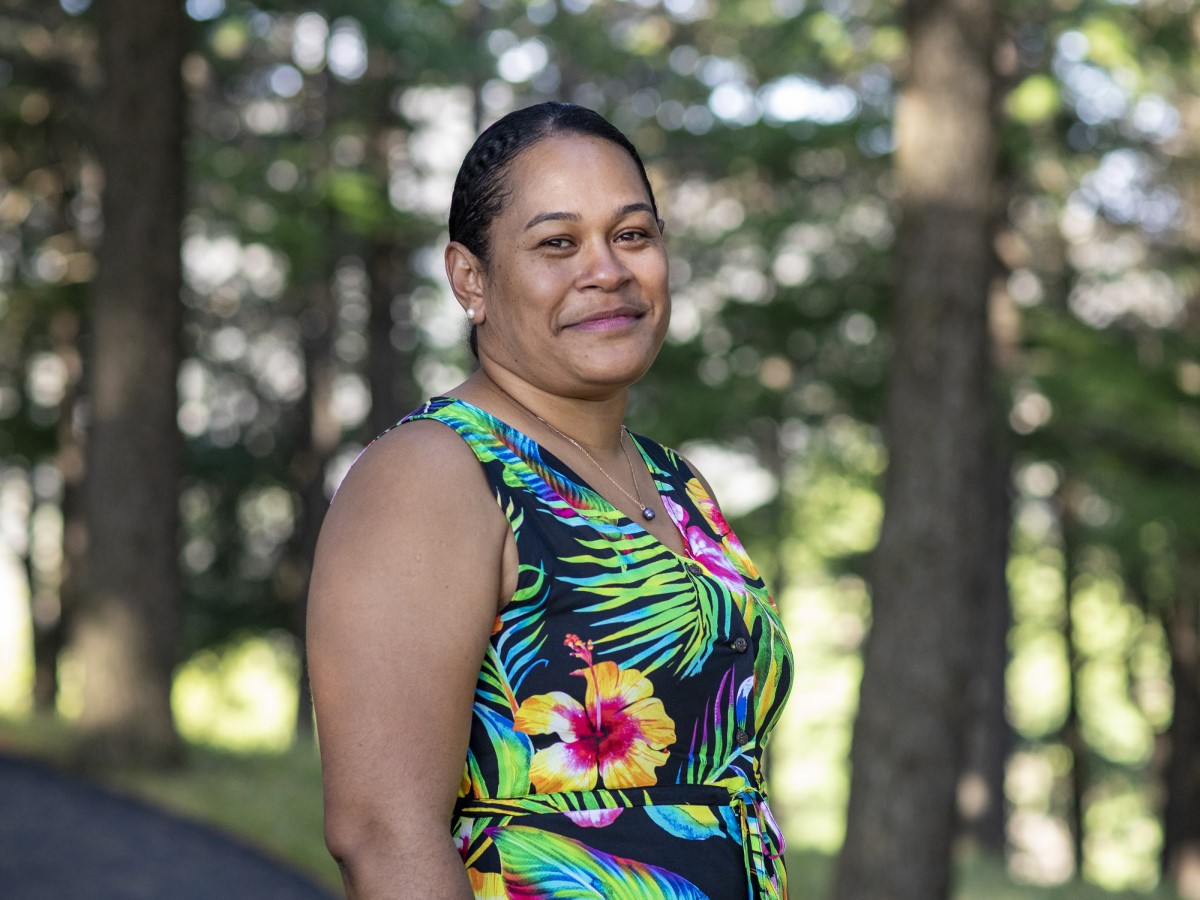
Women Leading and Influencing (WLI) participant Taina Waqaliva is passionate about the production and consumption of safe, healthy food to prevent illness and boost food security and economic development in Fiji.
She is the first and youngest female Environmental Health Officer to lead and manage the Food Unit of Fiji’s Ministry of Health and Medical Services. In this role, she and her team oversee the country’s wide range of food safety works.
Throughour her career, Taina has been commended for her collaboration efforts, her utilisation of technology, and for playing an instrumental role in reclaiming Fiji’s status in the European Union (EU) export market on Fish and Fishery products following delisting in 2008 which cost the region income and other export benefits.
On World Food Day, she reinforces the need to work together to create a culture of food safety and explains how taking part in the Women’s Developmental Leadership Program is helping her to identify opportunities to improve the effectiveness and enforcement of food practices and policies in Fiji.
Taina is working towards and wants to see a general improvement in food safety culture – including through food safety practices, compliance and commitments – among medium-sized food processor enterprises, eateries, and mobile small-scale vendors (including street food vendors) in rural and urban communities.
According to Taina, this is because the problem and opportunity to prevent food-borne disease relies on facilities’ and humans’ support for safety-promoting attitudes and adherence to food-safe behaviours.
“In the future, it will be great to see Fiji’s food industry make food safety a culture within their facilities so attitudes and behaviour promote good hygiene and food safety practices. This is because human behaviours are the root cause of food safety issues,” she explains.
Aside from the obvious public health benefits, Taina says adopting food-safe practices is also good for business.
"Most vendors rely on food as a source of income and livelihoods. The best we can do as [food safety] enforcers is to support and improve their practices so they produce safe food for consumers and reduce the risks of foodborne illness and consequential legal actions,” Taina explains.
To do this, Taina believes enforcement officers need to be empowered to build on their capacity to ensure community compliance (in practical ways) to prevent foodborne disease and promote public health.
According to Taina, another vital component in the promotion of food health is local production and processing, which has declined over generations in place of external importation.
COVID-19 forced Fiji and many other nations around the globe to recognise the importance of local food production, not only for economic development, but also food security and public health.
Taina explains, “[In Fiji] we used to produce our own milk, rice, butter and affordable sugar, but the focus has changed over the years.
“Being self-sufficient to produce locally leads to the reduction of food importation, increases food accessibility and reduces costs, including VAT and other fees, associated with expensive and often unhealthy imported foods that also contribute to non-communicable disease in Fiji.
"Local food production also enables supply to local and export markets, thus contributing to the country’s economy and providing employment at the community level.”
Taina says foods that could be produced and processed locally include basic canned items, “That we normally import, such as tomatoes and pineapples which are in abundance when it’s the season and yet sadly, most times we see them wasted in the markets, retailers and even our own homes.”
She hopes successive governments will increase their focus on, and commitment to, the local agriculture sector and support vital stakeholders in Fiji’s food system.
To do this, “there is a need for stakeholders in the food sector to work together” to increase local production, create market pathways and access, provide high-value products, and promote ways to mitigate climate change impacts and other issues that challenge Fiji’s food system.
“The effort cannot happen overnight, but consistent actions and commitments will see this through and contribute positively to Fiji’s economic status, food security and food availability for its people,” she explains.
As a 2023 Womens’ Developmental Leadership Program participant, Taina has already learned valuable lessons, tools and concepts to help her lead and influence positive change in Fijian food production and safety on her return home.
Taina says, "The [Womens’ Developmental Leadership Program] has assisted me to identify areas and opportunities where I can influence change and taught me something I didn’t realise before; that not all development change can be achieved through technical leadership.
“So far, the journey has also expanded and strengthened my professional networks and boosted my confidence and my abilities as a leader.
“I can say I am ready to take on and manage the challenges and setbacks I will experience upon returning home while making a difference in the practices and policies of food safety enforcement and compliance.”
***
Taina is a participant of the 2023 Women’s Developmental Leadership Program currently undertaking her Master of Food Science at The University of Melbourne. Learn more about the WLI program and its participants and alumni.